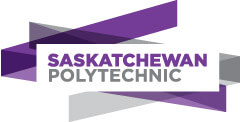About Recreation And Community Development Diploma in Saskatchewan Polytechnic
Program Overview
Leadership, volunteerism, social awareness—these are characteristics shared by people working in recreation and community development. It’s a growth industry, and Saskatchewan Polytechnic's new Recreation and Community Development program will help turn your passion into a dynamic career.
Be a recreation director, manager of sport, recreation and culture, community development officer, facility manager or special events manager. Your skills are in demand in rural and urban communities.
Recreation and Community Development (formerly Recreation and Tourism Management) is a two-year diploma program offered at Saskatchewan Polytechnic Saskatoon Campus. The comprehensive curriculum is relevant to real world trends, thanks to strong support from the industry. You’ll learn:
- event planning
- communication and computer skills
- community and economic development
- environmental sustainability
- management skills
- leadership skills
- legal aspects
- camp practices
With average class sizes of 20-25 students, you’ll enjoy a personalized learning experience and one-on-one time with instructors. You’ll gain both industry-specific knowledge and core management skills.
Get Real
The program provides a variety of opportunities for you to apply what you’ve learned in practical labs and projects, in work experiences and in volunteer opportunities. You’ll develop the professional skills you need to help build active, healthy, sustainable communities.
How Many Programs Have ‘Camp’ on the Curriculum?
We have our own outdoor camp on the north side of Candle Lake. You and your classmates will spend one week at Fall Camp and another week at Winter Camp planning outdoor programs and leading outdoor education and recreational activities. It’s a great environment for building your cultural, environmental and community development skills.
Start Building Your Network
Start building your network with student membership in industry associations, including Saskatchewan Parks and Recreation Association (SPRA), Saskatchewan Economic Development Association (SEDA) and Saskatchewan Association of Recreation Practitioners (SARP).
Turn Your Diploma into a Degree
Saskatchewan Polytechnic is your ladder into the Sport and Recreation Studies program at the University of Regina, the Global Tourism Management program at Royal Roads University in Victoria, B.C. and the Tourism Management program at Vancouver Island University.
Career and Salary Information
Your Career
When you graduate, look for management and administrative opportunities in the public sector: municipal leisure departments, regional community development organizations, health districts, fitness facilities and national parks.
Academic qualification equivalents:
- Grade 12 with a minimum 60% in each of the following subjects: English Language Arts A30, English Language Arts B30, Chemistry 30 and Pre-Calculus 30
English language requirements (one of the below):
- IELTS : Overall minimum score of Band 6.5 with a minimum score of 5.0 in each component.
- TOEFL : An overall minimum score of 81 on the Internet-based Test of English
- PTE : A minimum score of 63 with minimum component scores of 50.
Saskatchewan Polytechnic Highlights
| Type |
Public |
| Campus Setting |
Urban |
| Application mode |
Online and Paper mode available |
| Graduation rate |
62% |
| Acceptance rate |
96% |
| Number of Students |
16,008 |
| Overall cost of living |
14,762 CAD |
| Academic calendar |
Semester based |
| % of International students |
6% |
| Number of campuses |
4 |
| Medium of instructions |
English |
| Undergraduate Tuition fee |
14,044 CAD |
| Postgraduate Tuition fee |
16,426 CAD |
| Cost of living |
694 -1147 CAD per month |
Saskatchewan Polytechnic First-Year Tuition Fees And Living Expenses For International Students
Over the course of one academic year, the following graph displays tuition and living expense estimates in Canadian currency for one full-time international undergraduate student. Please bear in mind that these are only estimates; actual pricing will vary depending on your needs and preferences. Other factors to consider include currency changes, visa and study authorization fees, and vacations back home.
- For international students, the overall fees will range from:-
| Particulars |
Amount |
| Administrative fees |
50.00 to 150.00 CAD |
| Application fees |
150 CAD |
| Student association fee |
95.00 to 445.00 CAD |
| Non-refundable fee at the start) |
1,000 CAD |
| Tuition fee range |
6,195 to 18,089 CAD |
| Laboratory fee |
100.00 to 409.00 CAD with no fees for
some courses which do not have a lab service. |
| Books and Supplies |
200 to 3,725 CAD |
| Technology fee |
50 to 146 CAD |
- For a student of Saskatchewan Polytechnic the required financials (Cost of Attendance) can be:-
| Description of Financials |
Amount in CAD |
| Average cost of tuition |
11245.77 CAD |
| Cost of living |
10799.39 CAD |
| Application fee |
150 CAD |
| Estimated total (per year) |
22,195.16 CAD |
